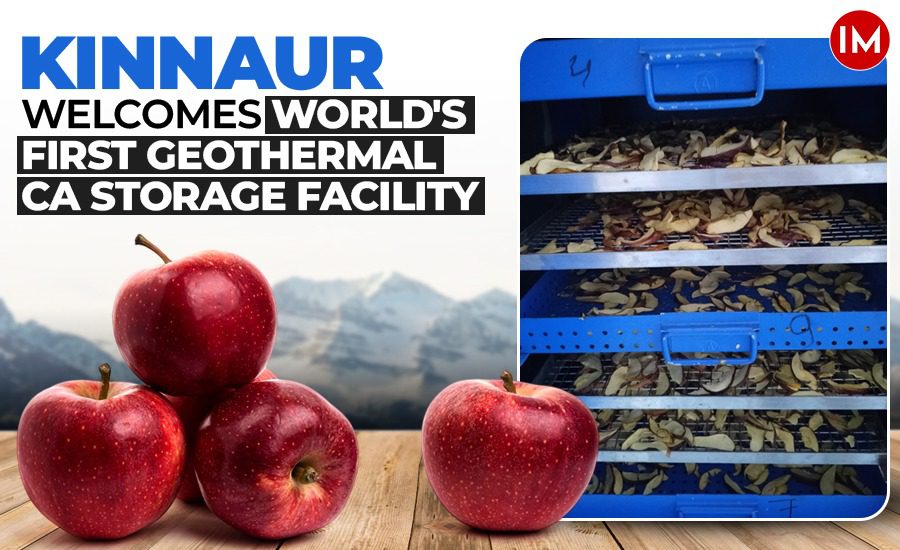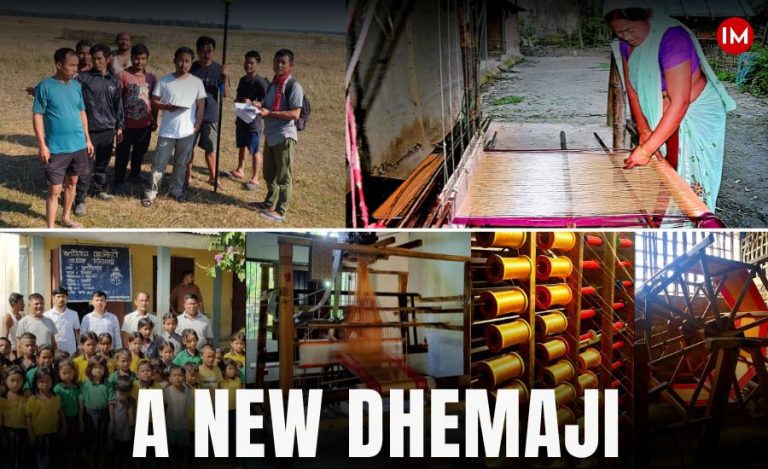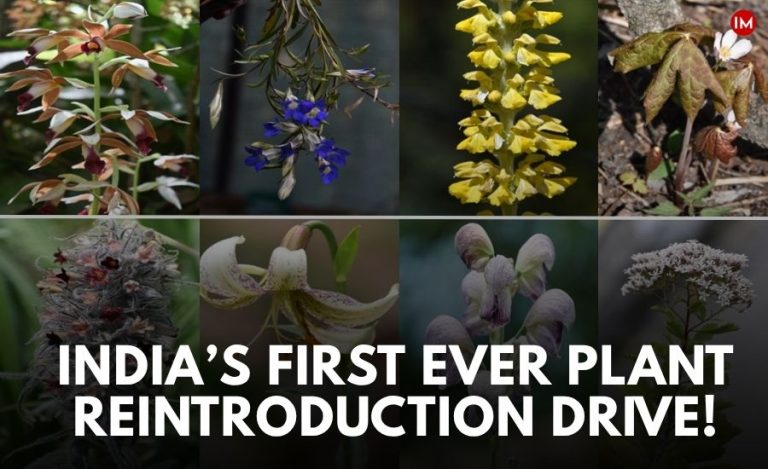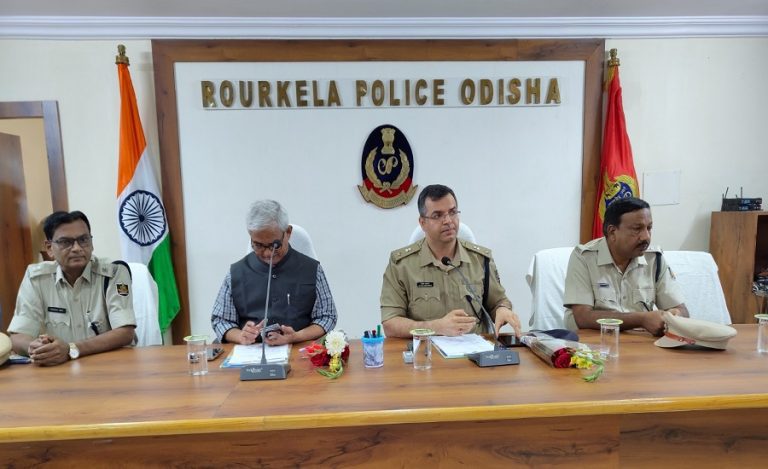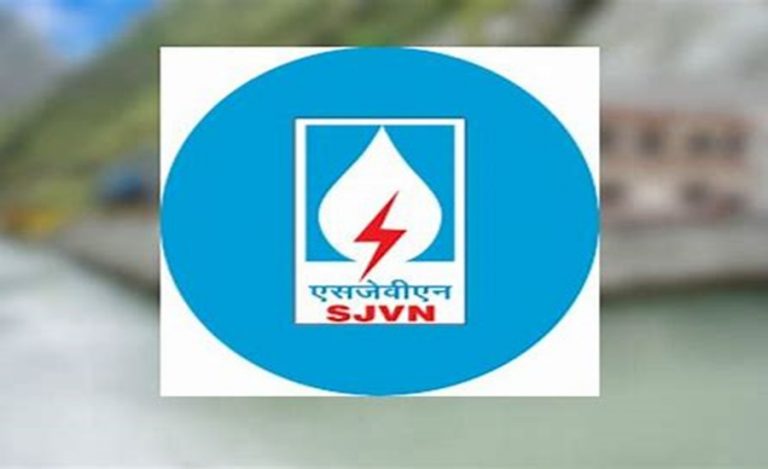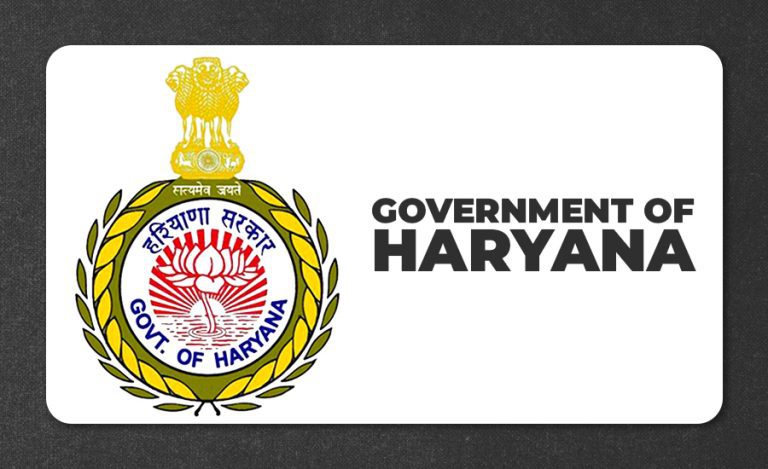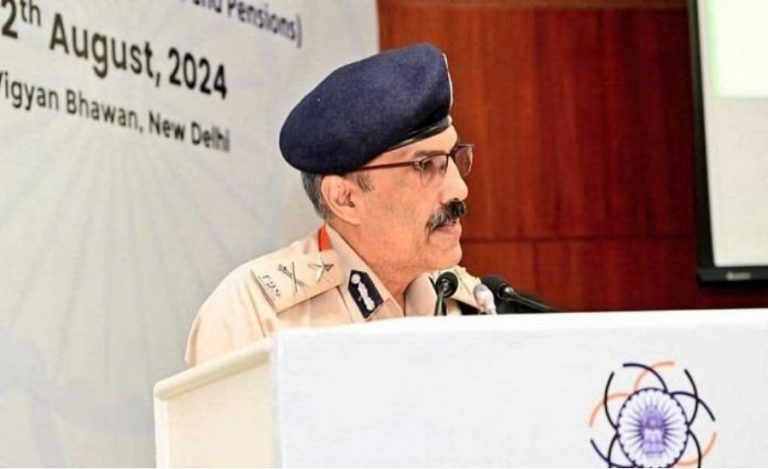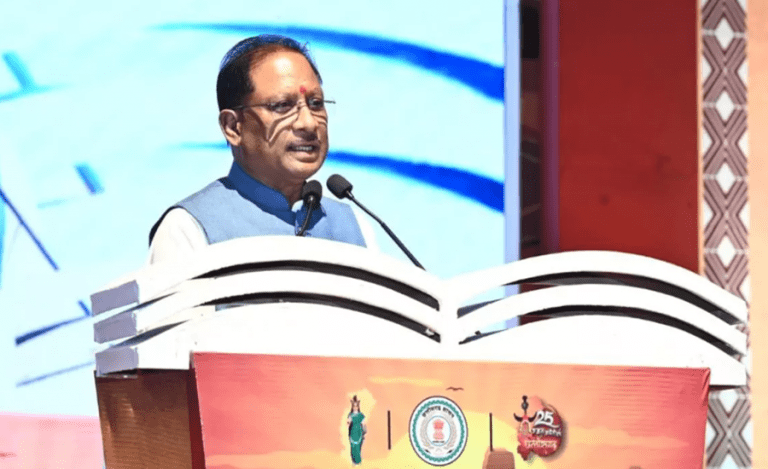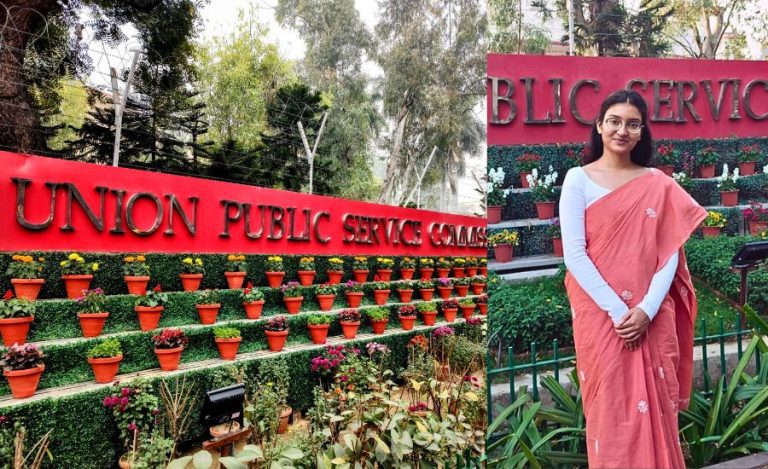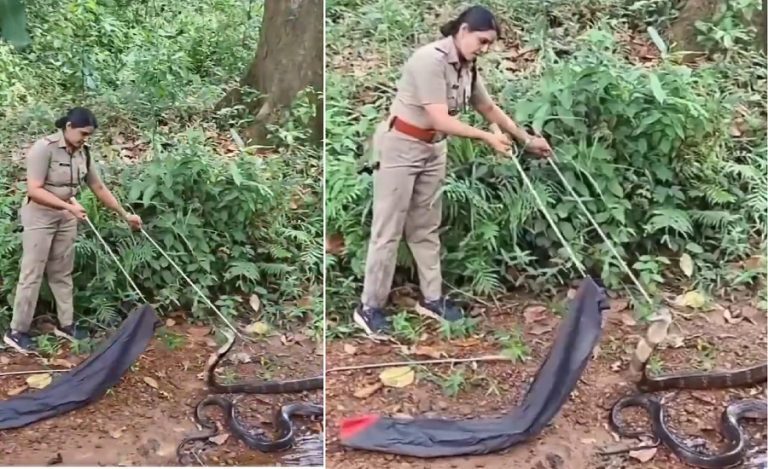Deep in the scenic valleys of Kinnaur, a small Himalayan district, something groundbreaking is bubbling—quite literally. Beneath the picturesque mountains, geothermal energy is not just keeping the earth warm; it’s warming the hearts of Kinnauri apple growers and apricot farmers. And leading this quirky yet ingenious transformation is IAS officer Amit Kumar Sharma, the District Collector of Kinnaur.
With groundbreaking projects like the world’s first geothermal-controlled atmosphere (CA) storage facility and a geothermal spa in the pipeline, Kinnaur is on the cusp of an economic and environmental transformation.
In an exclusive conversation with Indian Masterminds, the officer shared details about the same.
A GAME-CHANGER FOR HORTICULTURE
Kinnaur’s economy thrives on its horticulture, primarily apple orchards and apricot farms. However, unpredictable weather, pest attacks, and market saturation during harvest season have kept the farmers from realizing the true value of their produce. Enter the geothermal CA storage facility, a cost-effective and environmentally friendly storage facility for horticulturists, which will help maintain the quality of fresh produce and extend its shelf life.
“This project is a game-changer,” says Mr. Sharma. “Controlled atmosphere storage allows us to preserve apples and other perishable goods for much longer, without relying on harmful chemicals. It is advanced technology combined with the clean potential of geothermal energy.”
The project, to be built at Tapri in collaboration with Iceland’s geothermal experts, promises to stabilize market conditions for Kinnaur’s prized apples. Farmers will no longer have to flood the market during harvest; they can store their produce and sell it when prices are higher.

THE SCIENTIST BEHIND THE SCENES
Interestingly, this ambitious initiative has its roots in the work of a local researcher, Vijay. Having conducted a feasibility study on geothermal energy while working in Iceland, Vijay demonstrated its potential in Kinnaur.
“He was the one who bridged the gap between us and Icelandic companies,” explains Mr. Sharma. “This is proof of how local talent, when supported, can bring transformative ideas to life.”
The success of a geothermal drying unit, set up earlier this year for apricots and pears, further boosted confidence in the project. “The dried produce was golden, clean, and market-ready in under an hour,” Mr. Sharma adds. “Traditional sun-drying, which takes weeks and is prone to dust contamination, doesn’t stand a chance against this.”

A HOTBED OF IDEAS
But Mr. Sharma and his team didn’t stop at CA storage. They saw geothermal energy as a resource with endless possibilities. Alongside the storage facility, plans are underway for a geothermal spa, tapping into Kinnaur’s natural hot springs.
“The spa has the potential to turn Tapri into a tourist hotspot,” Mr. Sharma notes, visibly excited. “It’s not just about apples and apricots; this is about creating a holistic economic ecosystem.”
The energy-efficient spa, powered by geothermal heat, will add another feather to Kinnaur’s cap, showcasing how traditional resources can be reimagined for modern applications.

ORGANIC GOLD AND MARKETING WOES
In Kinnaur, where an organic movement is gaining ground, one village stands out. Shalkhar Village has declared itself 100% organic, imposing a hefty ₹50,000 fine on anyone using chemical pesticides. While admirable, this effort has a glaring issue: the produce fetches the same price as conventionally grown crops in the market.
“This is a sore point. It’s disheartening to see such high-quality organic produce not being rewarded. We’re working to establish partnerships with major agribusiness companies to ensure farmers get a premium price for their effort,” the officer told Indian Masterminds.
The push for organic farming aligns with Kinnaur’s image as a pristine, chemical-light region. Combined with geothermal technology, the district could soon lead India in sustainable and high-value agriculture.
HEATING HOMES AND POWERING LIVES
Beyond horticulture, geothermal energy could revolutionize everyday life in Kinnaur. The region’s harsh winters make heating a necessity, currently reliant on electricity and kerosene. Sharma sees geothermal energy as a long-term solution.
“We are sitting on a gold mine of geothermal potential,” he says. “If we can harness it for village heating, it will significantly reduce fuel dependency and improve living standards during winters.”
This vision is inspired by Iceland’s success in utilizing geothermal energy for heating homes, an example Kinnaur hopes to emulate in its own way.

SPORTS AND BEYOND
Under Sharma’s leadership, the district is also focusing on youth development. A state-of-the-art sports complex is set to come up, costing ₹28 crore. The aim is clear: provide avenues for engagement and growth while steering the youth away from drug abuse.
“We can’t just talk about development without addressing our youth,” Mr. Sharma emphasizes. “Sports build discipline — something every young person in Kinnaur can benefit from.”
A GEOTHERMAL HUB IN THE MAKING
As these projects take shape, Mr. Sharma is optimistic about Kinnaur’s future. “This is just the beginning,” he says. “Our geothermal potential can be expanded into other areas, creating jobs, boosting tourism, and putting Kinnaur on the global map for innovative energy solutions.”
With its picturesque valleys and enterprising leaders, Kinnaur is redefining what it means to merge tradition with innovation. As geothermal energy powers its orchards, homes, and even tourist attractions, it won’t just be the apples turning golden—Kinnaur’s future will be too.

